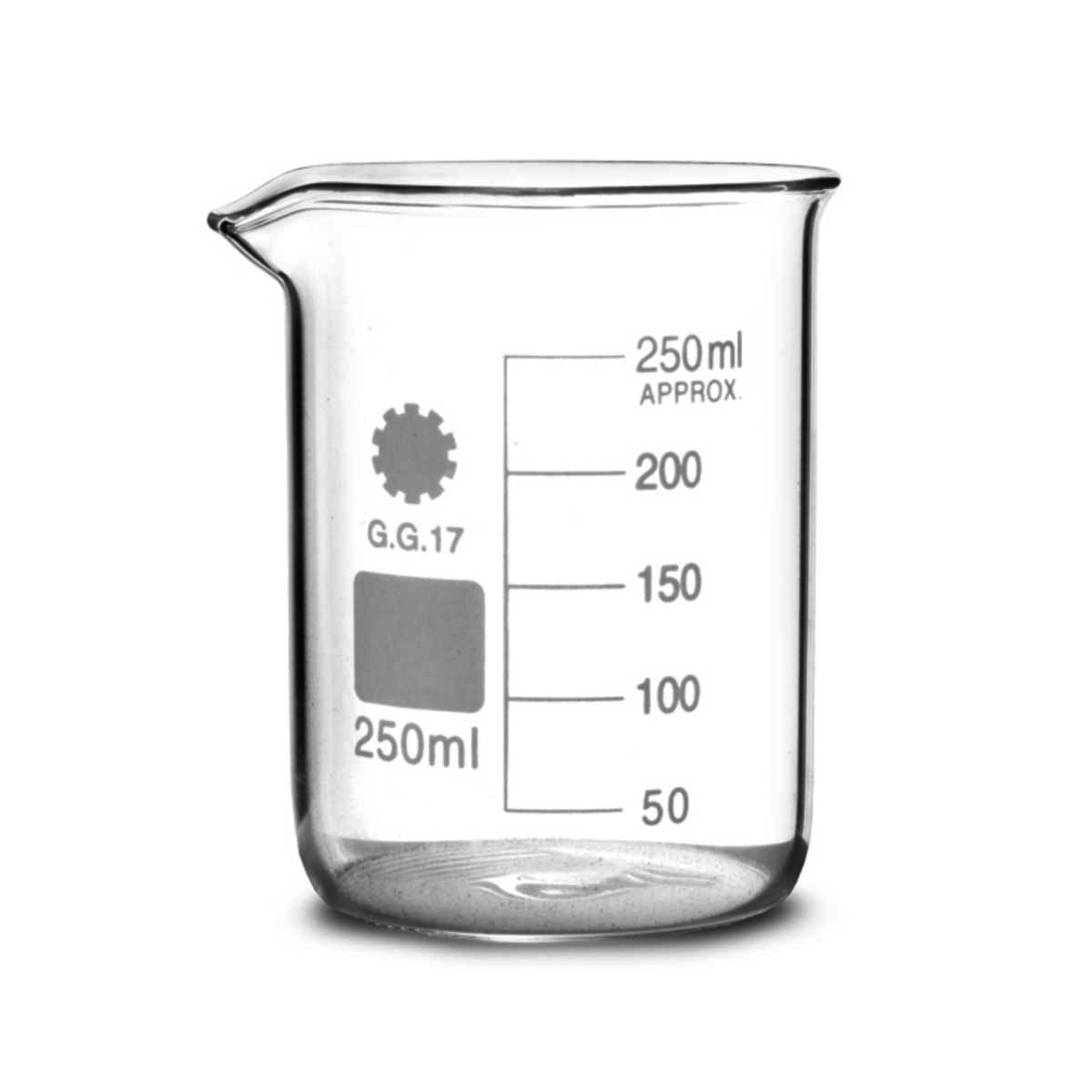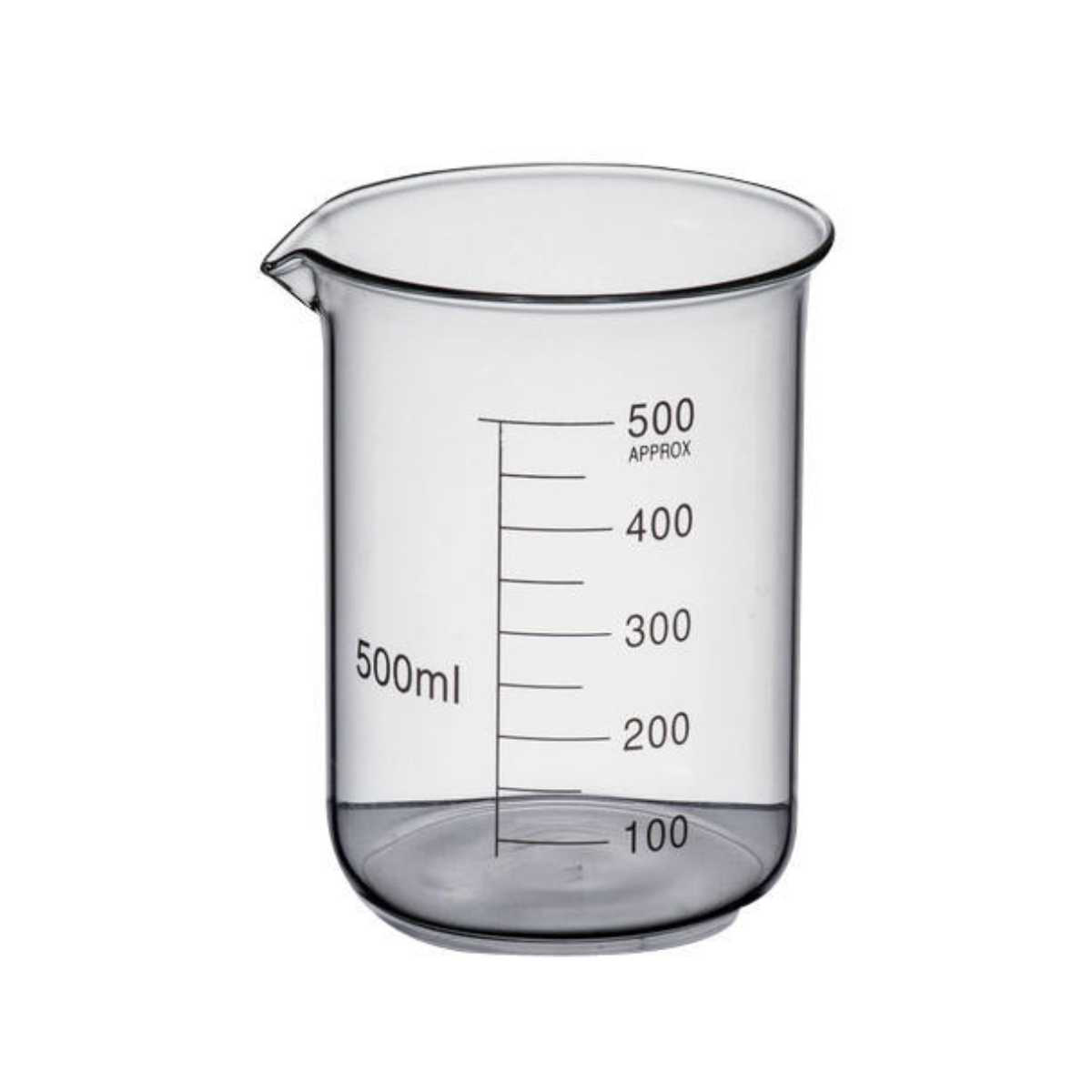Measuring Beaker: Your Ultimate Guide To Mastering Liquid Measurements
So here's the deal, if you're looking for a foolproof way to measure liquids, you’ve come to the right place. Measuring beakers are not just fancy lab tools; they’re game changers in both science and everyday life. Whether you're whipping up a storm in the kitchen or conducting experiments in a lab, having the right tool is crucial. This guide will dive deep into everything you need to know about measuring beakers, and trust me, by the end of it, you'll be a pro.
Now, before we get into the nitty-gritty, let’s set the scene. Imagine this: you're in the middle of baking your grandma's famous chocolate cake, and suddenly you realize your measuring cup has gone missing. Panic sets in, but wait—what if you had a measuring beaker lying around? These bad boys are designed for precision, so your cake won’t be ruined after all. That’s just one example of how useful these tools can be.
And hey, let’s not forget about the science nerds out there. For those of you who spend hours in the lab, measuring beakers are your best friends. They help ensure accuracy when dealing with chemicals, solutions, and other liquids. So, whether you're cooking or experimenting, this article has got you covered. Let’s get started!
- Ibomma One Your Ultimate Guide To The Latest Trending Entertainment Hub
- Movierulz Vc The Ultimate Destination For Movie Enthusiasts
What is a Measuring Beaker Anyway?
Alright, let's break it down. A measuring beaker is essentially a cylindrical container with a spout and graduated markings on the side. It’s used to measure and mix liquids, making it an essential tool in labs, kitchens, and even art studios. The markings allow you to measure the volume of liquid accurately, and the spout makes pouring a breeze. Simple, right? But don’t underestimate its importance!
Why Use a Measuring Beaker?
Here’s the thing—accuracy matters. Whether you're following a recipe or conducting a scientific experiment, having precise measurements can make all the difference. Measuring beakers offer a level of precision that your regular cups or glasses just can’t match. Plus, they’re durable, easy to clean, and come in various sizes, so you’ve got options galore.
Oh, and let’s not forget the versatility. You can use them for mixing, heating, and even storing liquids. Talk about a multitasking champ!
- Kannada Movies 2024 News Reviews Where To Watch Updated
- Vegamovie Your Ultimate Destination For Movie Entertainment
Types of Measuring Beakers
Not all beakers are created equal. Depending on your needs, you might want to choose a specific type. Let’s take a look at some of the most common ones:
- Borosilicate Glass Beakers: These babies are made from high-quality glass that can withstand extreme temperatures. Perfect for experiments involving heat.
- Plastic Beakers: Lightweight and shatterproof, these are ideal for situations where durability is key.
- Stainless Steel Beakers: If you’re working with corrosive materials, stainless steel is the way to go. It’s resistant to rust and chemical reactions.
- Pyrex Beakers: Known for their resistance to thermal shock, Pyrex beakers are a favorite among scientists and home cooks alike.
Each type has its own set of advantages, so it’s important to pick the one that suits your needs best.
How to Choose the Right Measuring Beaker
Picking the perfect measuring beaker can feel overwhelming, but it doesn’t have to be. Here are a few factors to consider:
Material Matters
As we mentioned earlier, the material plays a big role in determining the beaker’s functionality. If you’re working in a lab, you’ll probably want something durable and heat-resistant like borosilicate glass. On the other hand, if you’re using it in the kitchen, a plastic or Pyrex beaker might be more practical.
Size and Capacity
Beakers come in various sizes, ranging from 10 mL to 10,000 mL. Think about how much liquid you’ll be measuring and choose accordingly. Remember, it’s always better to have a beaker that’s slightly larger than what you need to avoid spills.
Precision and Markings
Some beakers have more precise markings than others. If accuracy is crucial, opt for one with clear and detailed graduations. This will ensure you’re getting the exact measurements you need.
Proper Use and Maintenance
Now that you’ve got the perfect beaker, it’s time to learn how to use and care for it properly. Here’s a quick guide:
Cleaning Your Beaker
Regular cleaning is essential to keep your beaker in top condition. For glass beakers, a simple wash with soap and water should do the trick. Plastic ones might require a bit more care to avoid scratches. And if you’re dealing with stubborn stains, a bit of vinegar or baking soda can work wonders.
Handling Tips
Always handle your beaker with care. Avoid sudden temperature changes, especially with glass beakers, as this can cause them to crack. Also, make sure to dry them thoroughly after washing to prevent water spots.
Common Mistakes to Avoid
Even the best of us make mistakes sometimes. Here are a few common ones to watch out for:
- Using the wrong type of beaker for the job.
- Not reading the markings carefully, leading to inaccurate measurements.
- Overfilling the beaker, which can result in spills and accidents.
By avoiding these pitfalls, you’ll ensure your experiments and recipes turn out perfectly every time.
Applications of Measuring Beakers
Measuring beakers aren’t just limited to labs and kitchens. They have a wide range of applications across various fields:
In Education
Students and educators use beakers to demonstrate scientific concepts and conduct experiments. They’re an invaluable tool for teaching chemistry, biology, and physics.
In Industry
From pharmaceuticals to food production, beakers play a critical role in ensuring quality and consistency. They’re used to measure and mix ingredients, test products, and more.
In Art and Crafts
Surprisingly, beakers are also popular among artists and crafters. They use them for mixing paints, dyes, and other materials, ensuring their creations are vibrant and precise.
Buying Guide for Measuring Beakers
Ready to invest in a measuring beaker? Here’s a quick buying guide to help you make the right choice:
Check the Brand
Reputable brands like Pyrex, Corning, and VWR are known for producing high-quality beakers. Look for reviews and ratings to ensure you’re getting a reliable product.
Consider the Price
While it’s tempting to go for the cheapest option, remember that quality often comes at a cost. Investing in a good beaker will save you money in the long run.
Think About Your Needs
What will you be using the beaker for? Answering this question will help you narrow down your options and find the perfect match.
Fun Facts About Measuring Beakers
Did you know that the first beakers were invented in the 18th century? They’ve come a long way since then, evolving to meet the needs of modern science. Here are a few more fun facts:
- Beakers are named after their flat bottom, which allows them to stand upright without tipping over.
- The spout on a beaker is designed to prevent spills while pouring.
- Some beakers are even microwave-safe, making them perfect for quick heating.
Who knew something as simple as a beaker could have such an interesting history?
Conclusion: Why Measuring Beakers Are Essential
In conclusion, measuring beakers are indispensable tools that offer precision, versatility, and durability. Whether you’re a scientist, a chef, or an artist, having the right beaker can make all the difference. So, take the time to choose one that suits your needs and treat it with care, and it’ll serve you well for years to come.
And hey, don’t forget to share your thoughts in the comments below. What’s your favorite type of beaker? Or maybe you’ve got some tips for using them? Let’s keep the conversation going!
Table of Contents
- What is a Measuring Beaker Anyway?
- Why Use a Measuring Beaker?
- Types of Measuring Beakers
- How to Choose the Right Measuring Beaker
- Proper Use and Maintenance
- Common Mistakes to Avoid
- Applications of Measuring Beakers
- Buying Guide for Measuring Beakers
- Fun Facts About Measuring Beakers
- Conclusion: Why Measuring Beakers Are Essential
- Nihil Definition Understanding The Concept That Shapes Modern Thought
- Watch La La Land Free Online Your Ultimate Guide To Streaming The Movie

Measuring Beaker 250ml HALOMEDICALS SYSTEMS LIMITED

Measuring Beaker 500ml HALOMEDICALS SYSTEMS LIMITED

100ml Measuring Beaker, In Polypropylene With Graduations.